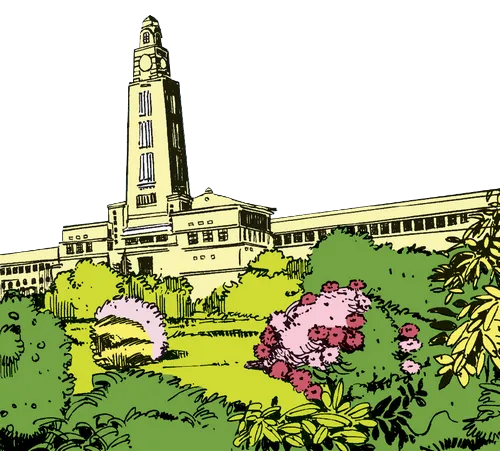G.D. Birla – Reliving a remarkable life
- Copy
Shri Ghanshyam Das Birla's prescience and resolve laid the foundation of Aditya Birla Group. A remarkable leader, he believed that businesses should create value for society and the country. It was this clarity that helped the man from Pilani to craft an incredible entrepreneurial story: one that broke imperial trade monopolies, set India on the path of industrialisation, and left a vast legacy of philanthropy and social good.
On Founder's Day, we look back at Shri G.D. Birla's life as an example of how a business can enrich people's lives, balance dynamism and responsibility, build institutions, and inspire trust

Enriching lives through business
Born in 1894 in Pilani, Rajasthan, Shri G.D. Birla was the first entrepreneur from his traditional Marwari family. However, he knew from an early age that business was not just a way to make profits, but also to enrich the lives of others. Business and social good were already part of his family's ethos.
At the age of 19, Shri G.D. Birla met Mahatma Gandhi and was influenced by his principles of nationalism and public welfare. These principles further cemented his perception of business as a force for good.
Between 1919 and his death in 1983, Shri G.D. Birla built the foundation of the Birla business empire. In addition, he strove to serve the Indian people and industry. From serving as a member of Central Legislative Assembly of British India in 1926 to co-authoring the Bombay Plan in 1945, he contributed towards building a progressive growth roadmap for India and Indians.
Thus, Shri G.D. Birla enriched lives at various levels and put the nation on the path of development. As we will see later, he also created businesses and institutions that transformed millions of lives – for which he was awarded the Padma Vibhushan in 1957.
Balancing dynamism with responsibility
Shri G.D. Birla was endowed with the courage to take bold risks. In 1919, when he decided to break away from his family's jute trading business and set up a mill (Birla Jute Manufacturing Co. Ltd.), his family initially opposed the idea of entering an unfamiliar area of business. However, Shri G.D. Birla's resolve to start his own company remained firm.
Things became even tougher when the British government also placed several obstacles in the path. They saw him as a native industrialist trying to break their stranglehold over the jute industry. Undeterred, he overcame all these hurdles.
This dynamism was never reckless; it was tempered with a sense of responsibility. Shri G.D. Birla was a vocal supporter of domestic enterprise and wanted his fellow Indians to eschew foreign goods in favour of quality, domestically-manufactured alternatives.
Over the decades, he asserted India's self-reliance in key industries by expanding into varied businesses ranging from textiles to tea estates. His efforts were instrumental in the eventual creation of the Birla conglomerate, which today has interests across core sectors like cement, aluminium, chemicals, rayon, telecom and financial services.

Building businesses and institutions
During his journey, Shri G.D. Birla supported and founded several businesses and institutions – from one of India's oldest commercial banks, The United Commercial Bank Ltd. (now UCO Bank), to manufacturing powerhouses like Grasim and Hindalco.
Grasim was founded in August 1947, mere days after India attained freedom. Shri G.D. Birla knew that a newly-independent nation would face an acute shortage of cotton for clothing, and decided to fill this gap with man-made fibres. A decade later, he established Hindalco in 1958 to indigenously meet the demand for aluminium. Four years later, he set up India's first integrated aluminium facility at Renukoot in eastern Uttar Pradesh.
Shri G.D. Birla also supported several social causes. Education was particularly close to his heart. In 1929, he established a primary school in Rajasthan under the Birla Education Trust. This was followed by the Birla Vishwakarma Mahavidyalaya College in Vadodara, which began after a generous contribution by Shri G.D. Birla. He also donated to the Aligarh Muslim University and helped set up the Banaras Hindu University. In addition, he funded several temples, planetariums and hospitals across India.
Shri G.D. Birla also knew the importance of cohesive industry bodies in promoting the interests of Indian businesses. He co-founded the Indian Chamber of Commerce, the first organised voice of Indian industry, in 1925. He was later the founding member of the Federation of Indian Chambers of Commerce and Industry (FICCI), the largest and oldest apex business organisation in India.
Inspiring trust
Mahatma Gandhi's concept of trusteeship left a deep impression on Shri G.D. Birla. He knew that any business needs to reflect the trust bestowed upon it by society. Shri G.D. Birla once said: "It has been the policy of the House of Birla not to build up business with a view to the accumulation of capital but to develop unexplored lines, harness the undeveloped resources of the country, promote know-how, create skilled labour and managerial talent, spread education and above all, add to the efforts of the leaders of the country who have been struggling to build a new, independent India, free from want, the curse of unemployment, ignorance and disease."
This culture of caring and giving is testament to the vision of Shri G.D. Birla, who knew that a business's legacy is measured by its stewardship of social goals. It is this same philosophy that makes Aditya Birla Group one of the most trusted businesses in the world today.
Mr. Sandeep Gurumurthi
Group Head, Communication & Brand
Aditya Birla Management Corporation Pvt. Ltd.
Call: +91-22-6652-5000 / 2499-5000
Fax: +91-22-6652-5741 / 42

















